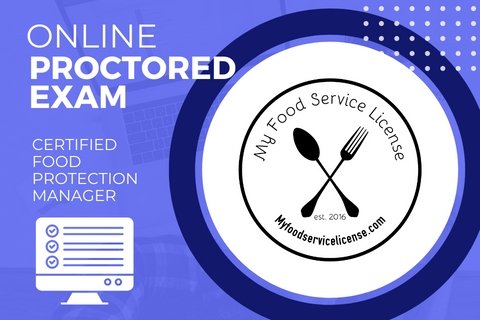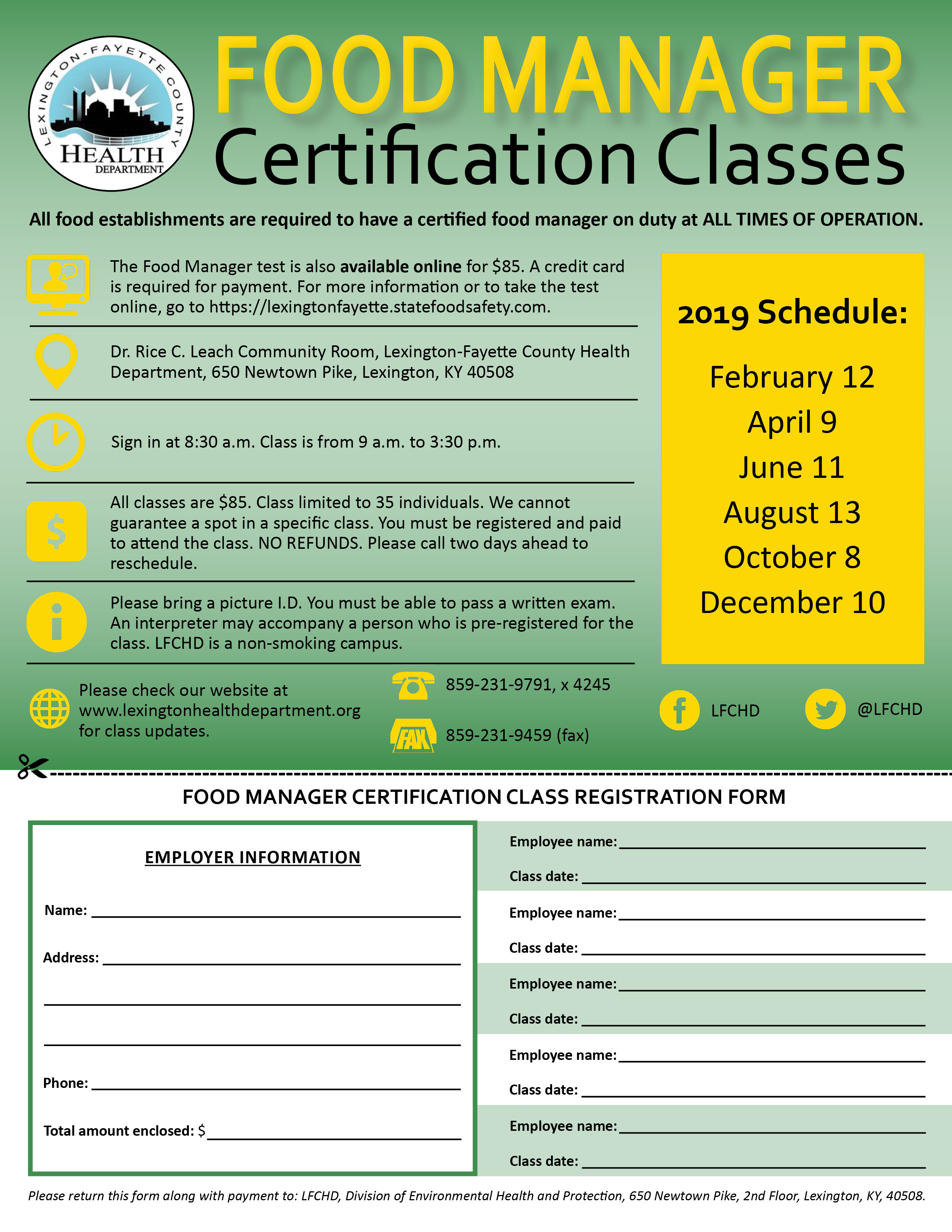Just How a ServSafe Manager Certification Boosts Leadership in Foodservice Workflow
Wiki Article
Professional Training for Food Manager Accreditation Made Simple
The value of food manager certification can not be understated, especially in an age where food security is extremely important. Specialist training programs have actually advanced to simplify the accreditation procedure, giving essential knowledge and practical abilities required for efficient food administration.Significance of Food Manager Certification
The relevance of Food Supervisor Certification can not be overstated in today's food service industry. This qualification symbolizes that food managers have the vital expertise and abilities to guarantee food security, maintain health criteria, and maintain regulative compliance. In an era where foodborne illnesses can have extreme repercussions, the role of a qualified food supervisor ends up being crucial in protecting public health.Food Supervisor Accreditation not just outfits people with the experience to determine and mitigate food safety dangers but likewise improves the trustworthiness of the establishment. Consumers are progressively discerning; they seek guarantee that their dining experience is hygienic and safe. Certification acts as a mark of expertise that can draw in and keep customers.
Moreover, neighborhood jurisdictions and lots of states mandate that establishments utilize qualified food managers to adhere to health laws. This requirement highlights the certification's importance in staying clear of potential legal implications and penalties. Furthermore, a qualified food manager can lead personnel training, cultivating a society of safety and liability within the work environment. Spending in Food Supervisor Qualification is an investment in quality, security, and the overall success of food service operations.
Summary of Expert Training Programs
Expert training programs for food manager qualification are developed to supply thorough education and learning on food security methods, regulatory compliance, and threat management. These programs intend to outfit food solution professionals with the expertise and abilities needed to make sure risk-free food handling and preparation in different settings, including restaurants, providing solutions, and institutional food operations.Usually, expert training programs include both sensible and academic components, permitting individuals to involve with real-world circumstances. The educational program usually includes essential subjects such as foodborne ailments, appropriate food storage strategies, sanitation methods, and worker training methods. These programs are regularly upgraded to line up with the most current market standards and guidelines, making certain that participants receive appropriate and existing info.
Numerous programs supply flexible shipment methods, including in-person courses, on the internet training courses, or a hybrid method, accommodating various knowing choices and schedules. Upon effective conclusion, participants typically get accreditation, which is commonly recognized by neighborhood health and wellness departments and governing companies, enhancing their job potential customers within the food service market. On the whole, professional training programs play an important duty in fostering a society of food security and compliance amongst food supervisors and team.
Trick Subjects Covered in Training
Food safety is a vital emphasis in food supervisor qualification training, incorporating a range of crucial subjects that make certain participants are well-appointed to handle food securely. Among the main subjects covered is the significance of individual hygiene, that includes appropriate handwashing methods and the importance of maintaining tidiness in food prep work locations.In addition, the training addresses foodborne ailments, describing the different microorganisms that can contaminate food and the signs connected with these health problems. Individuals find out about the conditions that promote microbial growth, which is crucial for stopping break outs.
Temperature control is another key subject, stressing the secure cooking, air conditioning, and storage space temperature levels necessary to reduce dangers. The training likewise covers cross-contamination prevention methods, ensuring that raw and cooked foods are taken care of suitably to prevent dangerous interactions.
In addition, food security laws and guidelines, such as those established forth by the FDA and regional health divisions, are discussed to supply a comprehensive understanding of conformity demands. Effective bug control actions are checked out to shield food facilities from invasions that can endanger safety. Jointly, these topics lay a solid structure for risk-free food administration techniques.
Benefits of Specialist Training
How can skilled training boost food safety practices within an establishment? Specialist training gears up food managers with extensive understanding of food safety and security regulations, sector requirements, and best practices. This foundational understanding is critical for maintaining a tidy and safe food preparation atmosphere, eventually minimizing the danger of foodborne health problems.In addition, specialist training cultivates an aggressive strategy to food safety by emphasizing safety nets and hazard analysis. Supervisors educated by market experts can successfully determine prospective dangers and carry out approaches to minimize them. This not just secures clients but likewise boosts the facility's online reputation and reliability.
In addition, professional training encourages a culture of continual renovation. Food managers that participate in ongoing education and learning Manager Certification Training are better prepared to adjust to brand-new policies and trends in the food solution industry. This flexibility can cause enhanced functional effectiveness and expense financial savings.


Steps to Attain Qualification
Achieving accreditation in food administration requires an organized approach that encompasses a number of crucial actions. Initially, people must pick an accredited training program that provides detailed coursework in food cleanliness, monitoring, and security concepts. These programs often give valuable resources, consisting of research study materials and technique examinationsNext, candidates should proactively participate in the training sessions, whether on the internet or in-person, to improve their understanding of necessary topics such as foodborne diseases, personal health, and proper food storage space methods. Participation in conversations and functional exercises can additionally strengthen knowing.

When appropriately prepared, prospects can take the examination and schedule. Effective conclusion generally needs attaining a details passing rating, which shows a thorough grasp of food safety standards.
Conclusion
In summary, expert training for food manager certification plays an important duty in making sure food safety and security and conformity with governing requirements. The structured programs offer crucial expertise and functional abilities necessary for managing foodborne illnesses and cleanliness procedures efficiently. By helping with accessibility and boosting job potential customers, these training efforts contribute considerably to public health. Inevitably, attaining food manager certification with professional training not just elevates specific proficiencies however also cultivates a much safer food environment for all.
Expert training outfits food supervisors with thorough expertise of food safety and security regulations, industry standards, and best techniques.In recap, specialist training for food supervisor qualification plays a crucial duty in making certain food safety and security and conformity with regulative standards (Manager Certification Training). Inevitably, accomplishing food manager certification via specialist training not only elevates individual competencies yet likewise fosters a more secure food atmosphere for all
Report this wiki page